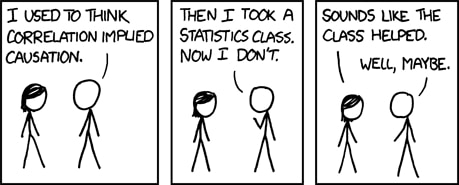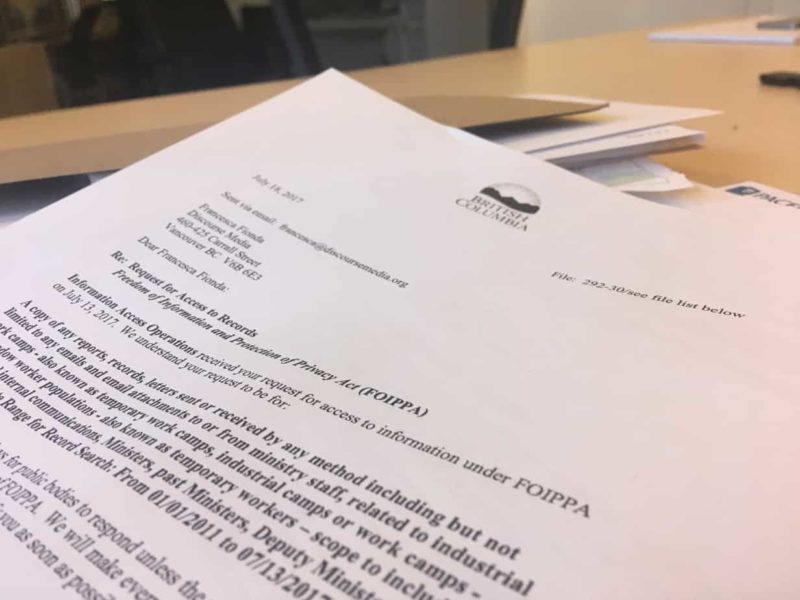
Tired of fighting with your partner? Is couples’ therapy too expensive? Luckily, there’s a cheaper way to save your marriage — stop buying margarine!
Data collected between 2000 and 2009 shows a clear link between a decline in the divorce rate in Maine to the per-capita consumption of margarine.
[discourseImage id=”7954″ size=”column”]
Happy April Fools’! The above graph, created by blogger Tyler Vigen for his book Spurious Correlations, suggests that there could be a relationship between two ridiculous things. And while the data is real, the conclusion that margarine consumption causes divorce rates (or vice versa) is not.
It seems obvious when looking at the above example — but confusing correlation and causation is an easy mistake to make.
Correlation is when two or more numbers move up and down together, or if one number moves up while the other moves down. That relationship can be measured.
Causation is when the movement of one number actually results from the movement of another number — a.k.a. “cause and effect.” It’s a lot harder to figure out.
For example, if you have data that shows that the number of people with lighters in their pockets correlates with the number of people who have lung cancer, it might be tempting to jump to the conclusion that lighters cause lung cancer. But dive deeper, and there’s another correlation between people who have lighters in their pockets and people who smoke (one doesn’t cause the other), and a causal relationship between smoking and cancer (we know that smoking actually causes cancer).
Still confused?

Here are four examples of when the mix-up between correlation and causation had major implications:
- When politicians linked the rising rate of crime to rising immigration.
- When Canadian journalists implied that the HPV vaccine had serious health risks.
- When U.S. President Donald Trump blamed video games for gun violence.
- When dark chocolate became a health food. (Yay!)
Want to find your own weird correlations? Check out Google Trends, where you can find out whether pirates have anything to do with global warming. Or, use Tyler Vigen’s tool to see if the number of Nicolas Cage movies correlates with shark attacks.
Know your sources
The Discourse is committed to being transparent and accountable to our readers, so we’ve listed all our sources for this newsletter, here:
-
“Divorce rate in Maine correlates with per capita margarine consumption,” Tyler Vigen of Spurious Correlations
-
“Correlation,” XKCD, Creative Commons Attribution-NonCommercial 2.5 License
-
2014, “Clearing up confusion between correlation and causation,” The Conversation
-
2013, “Statistical Language – Correlation and Causation,” Australian Bureau of Statistics
-
“Correlation Coefficient,” Investopedia [end]



